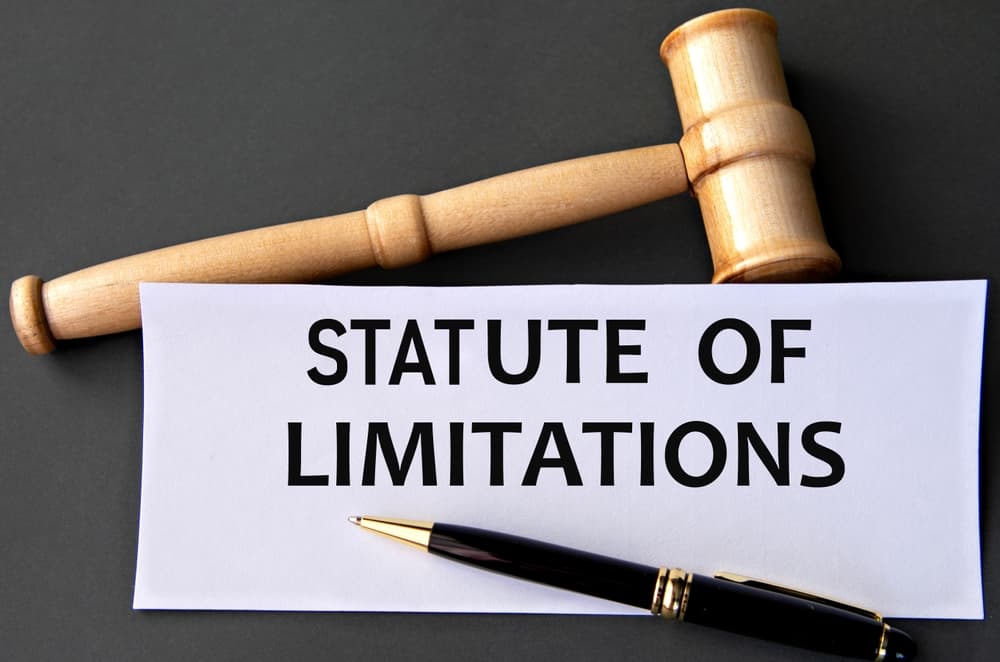The statute of limitations on medical malpractice is critical to obtaining maximum compensation if you’ve suffered harm due to a medical professional’s negligence. However, while many might think this principle of the law is straightforward, victims must keep in mind the many variations that exist.
Always consult a McLean medical malpractice attorney who will know the statute of limitations for your case and ensure you do not miss this strict deadline.
The Basics

So, what’s the significance of the statute of limitations on medical malpractice? It’s the deadline for taking legal action.
Courts establish this deadline to ensure fairness for victims and defendants. Suppose a doctor’s error hurts someone, and the victim waits 20 years to file a lawsuit. That doctor might no longer be in practice or even living. The case would be far too complex and chaotic.
If the statute expires in your case, you’ll find it very challenging to obtain compensation. You might even find it impossible. The statute of limitations is just one of the many reasons you must hire an experienced medical malpractice attorney as soon as possible.
General Information on the Statute of Limitations

All states have a statute of limitations on medical malpractice lawsuits. There are, however, differences between those states. We’ll focus on Virginia for this article since there are far too many variations among states.
In most instances, someone harmed by medical negligence has two years to take legal action against the negligent professional. If they immediately knew the professional’s error caused harm, they have two years from the date that harm occurred.
However, most patients don’t realize a mistake has occurred until long after receiving treatment. In this case, a patient has two years from the date they discovered the harm.
If the harm caused the victim’s death, the statute of limitations is two years from the date the person passed away.
Exceptions
The above is pretty easy to understand. But the statute of limitations on medical malpractice can also be complex, as you’ll see. Exceptions to the statute can complicate things.
Going back to the Virginia example, the state will allow victims to toll (extend) the statute in some situations. Here are just a few of the many examples.
- The victim was a minor when the malpractice occurred: If the victim was eight years or younger, their parent or family representative has until the child is ten to file a lawsuit. For example, if the child was five years old, they will have five years to take action instead of two.
- The medical professional left a foreign object in the patient’s body: This happens more often than you might think. However, in Virginia, the object must not have any diagnostic or therapeutic effect. If it doesn’t, the patient will have an extra year to file a lawsuit. The “clock,” so to speak, starts ticking the day the patient discovers the object is in their body.
- A healthcare provider fraudulently attempted to conceal their malpractice: Some medical professionals try to keep malpractice from their patients. Others go so far as to alter medical records to conceal their error. This behavior can make it impossible for a patient to realize malpractice occurred unless another doctor discovers the mistake. In this case, the patient will have an extra year to take action.
- The provider failed to diagnose cancer in a timely, proper manner: If a doctor fails to spot a malignant tumor or other sign of cancer, the patient will have three years to sue them instead of two.
Another exception isn’t a law in Virginia. However, the state’s Supreme Court ruled in a 1979 case that “continuing treatment” can be the basis for tolling the statute of limitations.
Why the Statute of Limitations is So Essential
As with any personal injury case, compliance with the statute of limitations on medical malpractice is critical. You’ll no longer have any legal recourse if you don’t meet the deadline. That means you’ll be responsible for whatever surgeries or other treatments are needed to rectify the medical error that harmed you. The professional who committed that error won’t face any accountability.
Why You Need a Medical Malpractice Attorney

There are many reasons why you’ll need a medical malpractice lawyer to have the best chance of obtaining the compensation you deserve. Here are just a few to keep in mind.
Complying With the Statute of Limitations
You already know the consequences of missing the statute of limitations on medical malpractice. An attorney won’t let that happen. They’ll deeply understand all the potential traps and nuances associated with the statute of limitations. An experienced lawyer can meet all deadlines and submit all necessary documentation on time.
Proving Malpractice Occurred
All personal injury cases are complex, but medical malpractice lawsuits can be even more complicated. An experienced lawyer knows that not all medical injuries happen due to malpractice. Sometimes, a procedure or medication presents a risk of severe side effects. In other instances, injuries might not be expected, but they’re also unavoidable. In these cases, a patient will not have grounds for a malpractice lawsuit.
However, skilled med mal attorneys know when a patient has a strong case. Lawyers know how to gather evidence to prove it. They can get answers from medical professionals and hospital administrators.
They also know how to investigate to prove malpractice occurred. Attorneys consult with medical experts who know the standard of care and when negligence occurs. They can obtain hospital and physician charts to determine precisely what professionals did to cause your harm.
Giving You Peace of Mind
You’ve been through an ordeal. You’re likely in a lot of pain and might also be exhausted. The last thing you need is to assume the mammoth undertaking of a medical malpractice case. Let an experienced lawyer handle it instead and focus on your recovery.
Please Don’t Hesitate to Contact a Med Mal Lawyer

An attorney will handle the responsibilities of complying with the statute of limitations on medical malpractice and deal with all the other responsibilities. Hiring a personal injury lawyer will make the difference between obtaining fair compensation and not getting nearly what you deserve.
